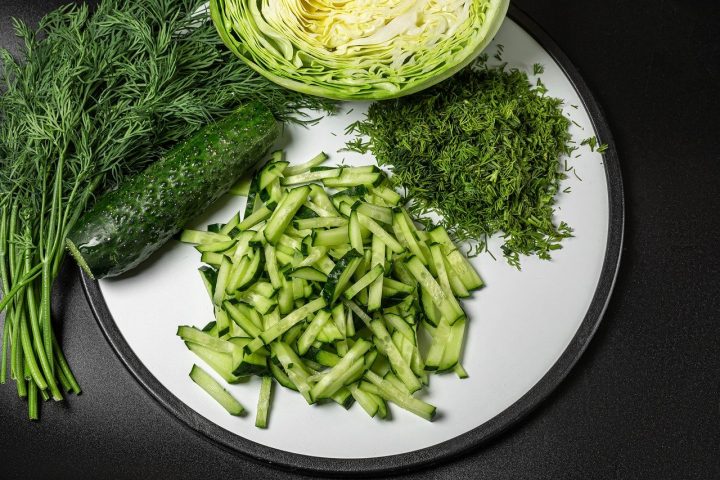The earthy, caffeine-infused coffee drink may hold more power than waking you up in the morning.
Drinking either sweetened or unsweetened coffee is associated with a lower death risk compared with not drinking the beverage, according to a new study published in the journal Annals of Internal Medicine.
Researchers surveyed 171,616 participants in the United Kingdom up to five times over the course of a year about their lifestyle, including their coffee-drinking habits. The scientists then looked up death certificates to see who had passed away an average of seven years later.

The participants ranged in age from 37 to 73 years old and reported they had no cardiovascular disease or cancer at the time of the survey.
Results showed that for people who drank a moderate amount of coffee, defined as 1.5 to 3.5 cups a day, those who sweetened their coffee had about a 30 percent lower death risk compared with non-coffee drinkers, according to Dr. Christina Wee, associate professor of medicine at Harvard Medical School, who was not involved in the study.
She is also deputy editor of the Annals of Internal Medicine.
Unsweetened coffee drinkers had between 16 percent and 29 percent lower death risk compared with non-coffee drinkers, she added.
The findings were adjusted for sociodemographic, lifestyle and clinical factors to eliminate their effects on the results. For example, the research team asked questions about smoking level, amount of physical activity, education level and dietary habits, Wee said.
There is a limit to the researchers’ adjustments because they didn’t ask about other factors that could affect the results like income level and occupation, she said.
Pay attention to added sugar
If you drink sugar-laden lattes and caramel macchiatos, you’re out of luck.
The average coffee drinker who reported they sweeten their coffee put in an average of 1 teaspoon, according to the study.
“If you’re only adding about 1 teaspoon of sugar to your coffee, the benefits of coffee that we think are there aren’t completely negated by that 1 teaspoon,” Wee said.
The results for people who used artificial sweetener in their coffee were less clear, so the researchers were not able to draw any conclusions for people who prefer sugar substitutes.
“Based on this study, clinicians can tell their patients that there is no need for most coffee drinkers to eliminate the beverage from their diet but to be cautious about higher calorie specialty coffees,” lead study author Dr. Dan Liu in an email.
She is from the department of epidemiology at Southern Medical University in Guangzhou, China.
How does coffee affect the body?
Previous research has shown that coffee intake could protect the heart and aid in treating other diseases, Liu said. It may also reduce the risk of liver problems, a 2021 study said.
Coffee also has different health profiles, depending on how it’s produced, said Gunter Kuhnle, professor of nutrition and food science at the University of Reading in the United Kingdom. He was not involved in the study.
Some types contain phenolic compounds, which are believed to be beneficial, he said.
Those chemical compounds affect the flavor and aroma of the coffee and are valuable because they can act as antioxidants and have anti-inflammatory and anti-aging properties.
The two most common coffee species are arabica and robusta, and research shows robusta coffee has a higher phenolic content than arabica coffee.
Unroasted, green coffee beans contain high levels of phenolic compounds, but the poor aroma when they are brewed causes people to roast them. Depending on the roasting level, some of the phenolic compounds can break down.
And depending on how you brew it, coffee can contain high levels of diterpenes, which are chemical compounds that can increase your risk of cardiovascular disease, Kuhnle said.
Boiled coffee and French press coffee contain some of the highest amounts of diterpenes, according to a 2016 study.
Mocha and espresso coffee contained a moderate amount of diterpenes while instant coffees or coffees made with filtration had the least.
What is the problem and what is known about it so far?
Coffee is one of the most commonly consumed beverages in the world. Some studies have found that drinking more coffee is associated with a lower risk for death.
These studies have included mostly white populations, and it is not clear whether this association is found in other groups. In addition, the relationship between coffee drinking and risk for death might differ according to the way coffee is prepared.
Why did the researchers do these 2 studies?
To determine whether the association between coffee consumption and risk for death differs according to ethnicity and cultural differences in how coffee is prepared.
Who was studied?
One of the studies included more than 185,000 adults from a range of ethnicities (African American, Latino, Native Hawaiian, Japanese American, and white). The other included more than 520,000 adults from 10 European countries, where people prepare coffee in different ways.
How were the studies done?
In both studies, the authors asked participants whether they drank coffee and how much, together with questions about other factors that influence a person’s risk for health problems and death (for example, cigarette smoking, exercise, diabetes, and heart disease). They then followed the participants for years to see how many died and whether the death rate differed for those who had reported drinking more coffee.
What did the researchers find?
In both studies, people who reported drinking more coffee tended to live longer than those who reported drinking less. This was true in African Americans, Japanese Americans, Latinos, and whites.
This finding did not differ among the 10 European countries. Rates of death from certain diseases seemed to be lower in those who reported drinking more coffee than in those who did not drink coffee, although the rate of death from ovarian cancer may have been higher.
What were the limitations of the studies?
These studies were based on a single report of how often the participants drank coffee, which may have changed over the years they were followed and might not have been accurate.
In addition, although the researchers tried to account for this, people who say they drink a lot of coffee may differ from those who do not in other ways that may affect their health.
What are the implications of the studies?
Although drinking coffee cannot be recommended as being good for your health on the basis of these kinds of studies, the studies do suggest that for many people, no long-term harm will result from drinking coffee.
By Megan Marples, CNN















